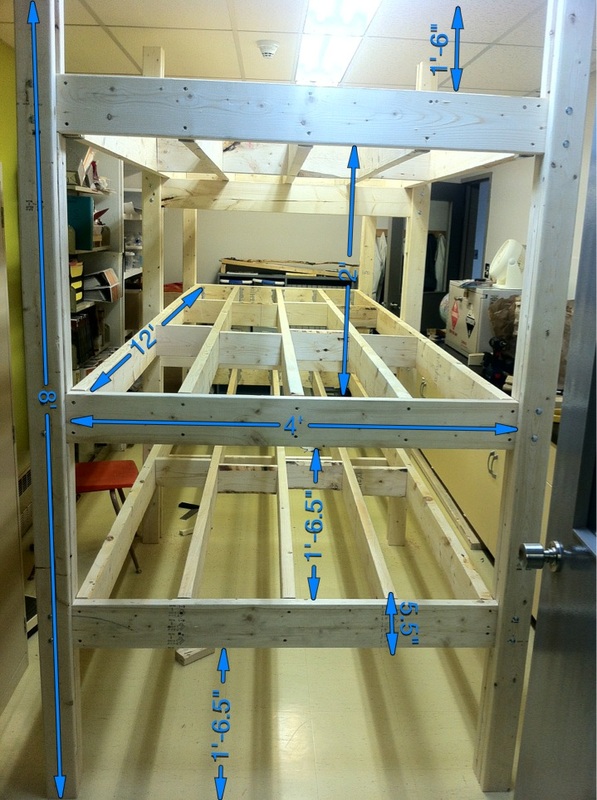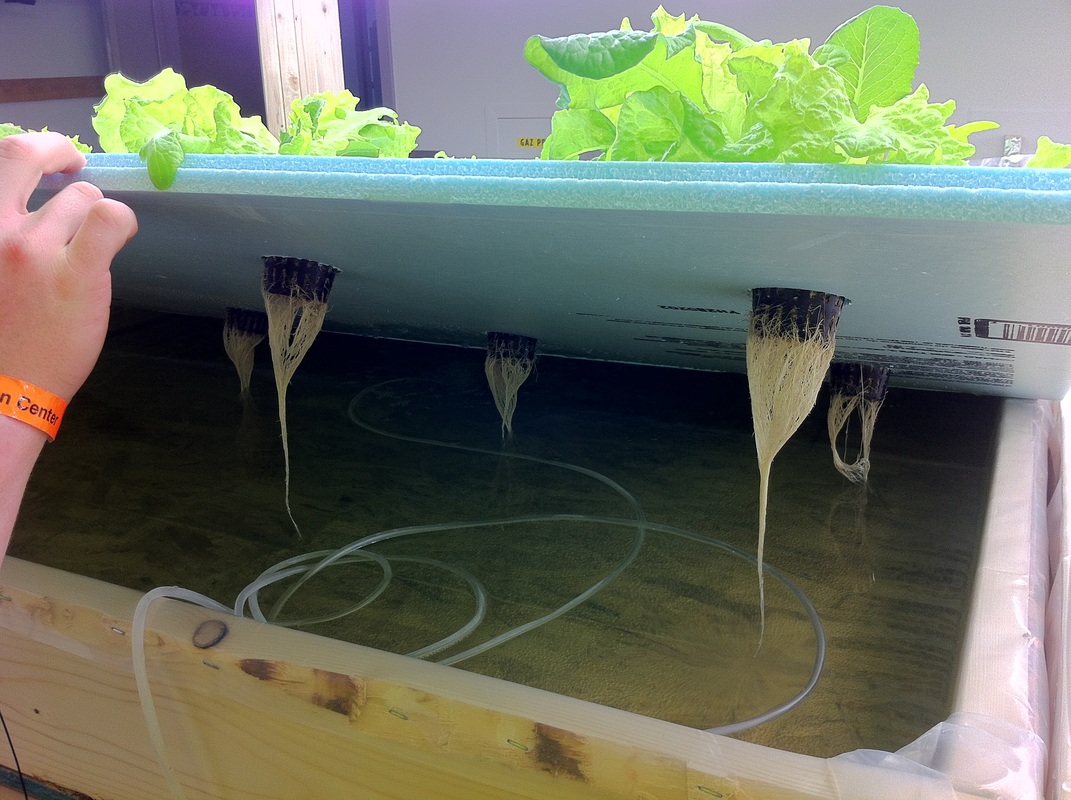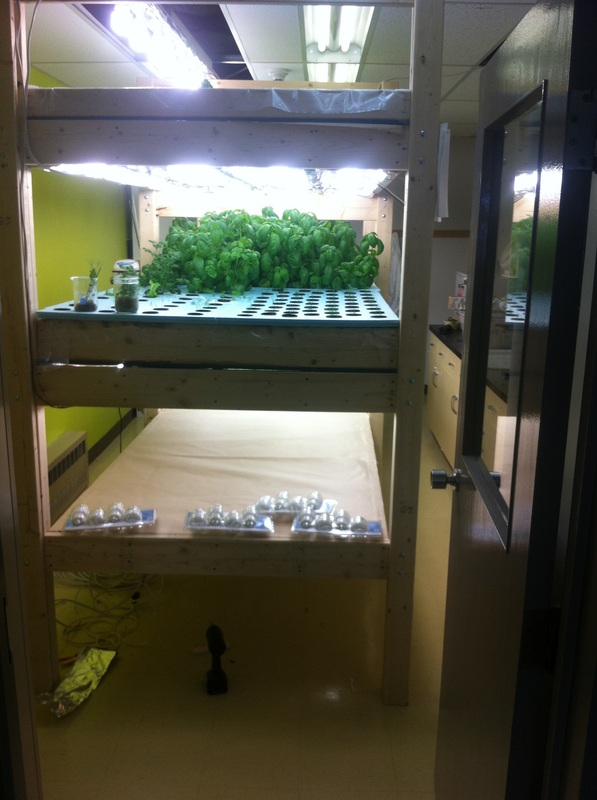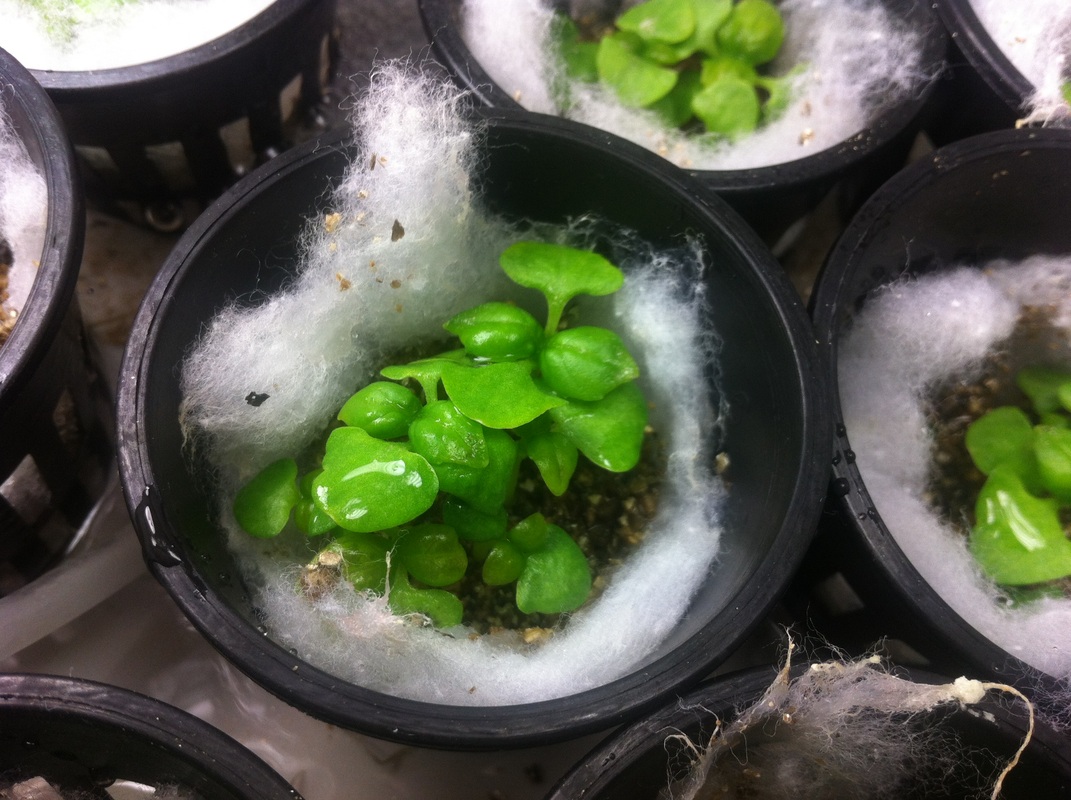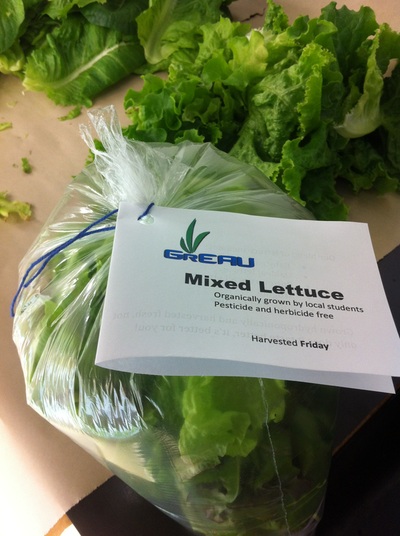
At Mecatina School in Tabatiere, students have built a hydroponic garden using cost and energy efficient methods, in order to supply the isolated community with fresh produce. To see more photos, see the bottom of the article.
It’s hard to believe that only five months ago, GrEAU, the student-run business and hydroponic garden at Mecatina School, was just an idea.
“We started brain storming in early November,” said Christopher Wong, the Science and Technology teacher who supervised the project. It began when three of his students wanted to enter the Quebec Entrepreneurial Contest 2014. Their goal was to create a business that applied the technology and science concepts they had learned in class with their desire to improve their community.
Mecatina School is situated on the rocky coastline of La Tabatiere, on the Lower North Shore of the St. Lawrence River, where there is no access to the community by road. Goods and supplies are sent in by boat or airplane. When produce arrives, it tends to be old or harvested before it’s ripe, forcing residents to pay a high price for food with reduced nutritional value.
Wong’s students decided to establish an environmentally friendly hydroponic garden using GMO-free, certified organic seeds. By selling their crops at $2-$3.50, they would be able to support the business while offering the isolated community fresh vegetables and herbs at a lower cost than what they would normally find in stores. The sustainable and efficient business also helps decrease the environmental impact from the transportation of food into the village.
Every Friday on their free period, one of the students delivers over 30 heads of lettuce, 10 bags of chives, 10 bags of dill and 10 bags of basil to the two local stores in the community. The veggies and herbs are organic, fresh and delicious, and it’s usually only a matter of days before the product is sold out.
The success of GrEAU came after months of hard work. Neither the students nor Wong has worked on a project like this before, so it was a learning experience for everyone. A great deal of research, planning and labour went into the garden’s construction. The students worked for many hours after school and even on weekends.
The team received a $300 grant from the CLC Initiative and a $1800 loan from the Governing Board (which has since been turned into a donation) in order to purchase their supplies. Starting in November and finishing by mid-March, the team constructed a system where up to 600 plants can grow at once in a 48 square feet space.
Despite its success, construction of the garden wasn’t always smooth sailing. Wong said that one day, when him and the students went to purchase wood in -30 degree Celsius stormy weather, they ran into some difficulty. “We were carrying the sheets of plywood and the really bad winds made them act just like sails,” he said with a laugh.
So, what about the contest? To the student’s and Wong’s disappointment, they didn’t win. “When I found out, it was around April Fool’s day so the kids thought I was joking. I had to show them the email before they believed me.”
While the contest loss was a shock, the students are still working hard at GrEAU. The group, which has gained a fourth member since starting, will be examining the acidity of the water in the near future. They also recently purchased shirts with the GrEAU logo. “One of the students works at the store where we sell the produce and he spends about an hour talking to people in the community about GrEAU every shift,” said Wong.
With the numerous ways GrEAU gives back to the school, community and the students themselves, it’s safe to say that everyone involved is a winner.
See GrEAU’s website here, for more photos, their proposals and additional details about the business.













